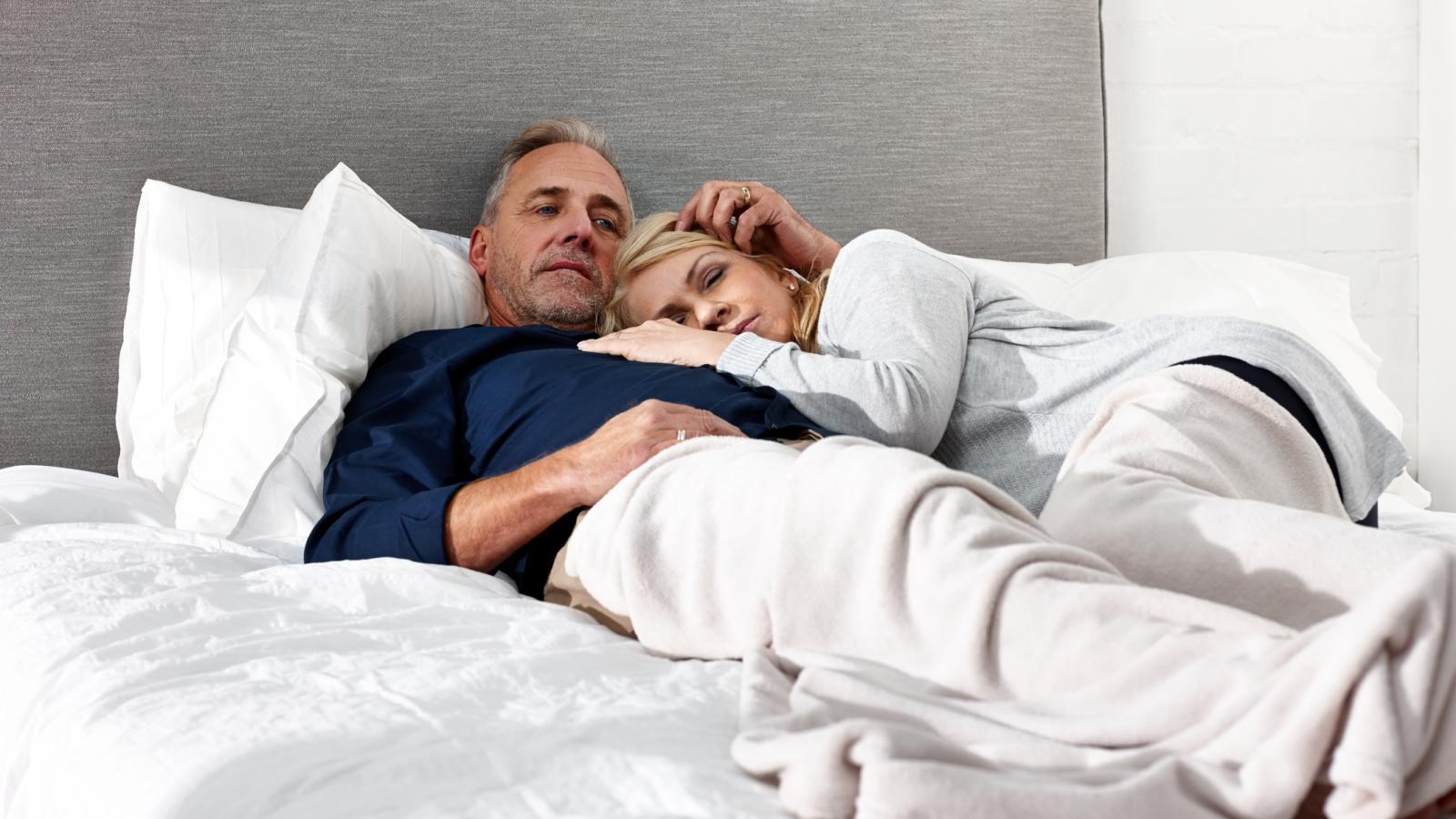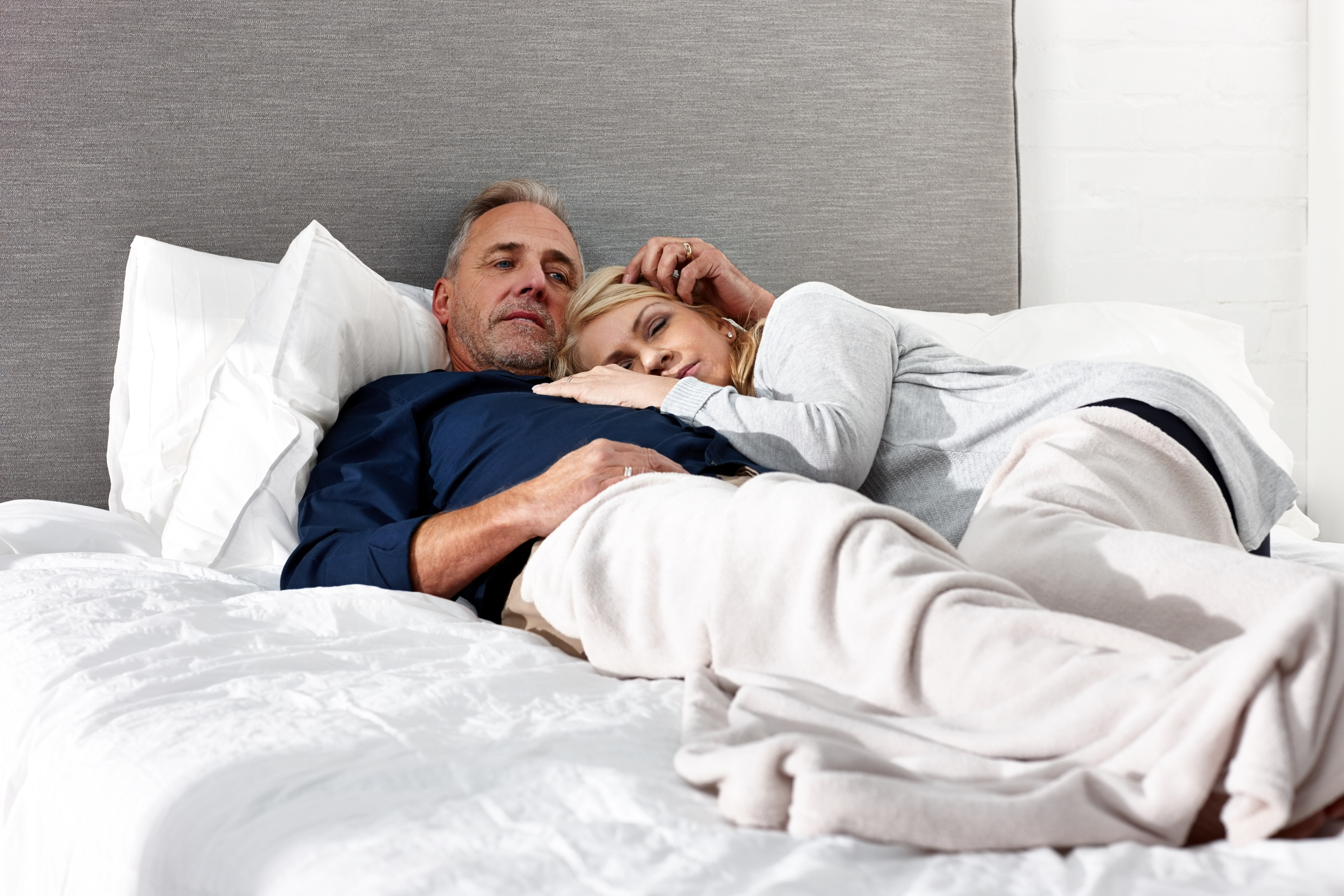Sex and fertility after breast cancer treatment

Sex after breast cancer treatment
Treatment for breast cancer can cause physical and emotional changes that can affect your sex life during treatment or in the months or even years afterwards.
Any problems usually improve with time, but don’t be embarrassed to ask for advice if you’re having any problems. Your specialist nurse can help, or talk to our cancer nurses by calling 1800 200 700 or visiting a Daffodil Centre.
Coping with physical changes after breast cancer treatment
Pain or discomfort
It may be difficult to hold or hug your partner if your wounds are still healing or if you have scarring after surgery. Your breast area may also be tender and painful to touch if it has been treated with radiotherapy.
Tip: Painkillers may help. Try different positions to make yourself more comfortable during lovemaking.
Fatigue
Fatigue is an extreme form of tiredness, which is often not helped by rest or sleep. If you’re feeling fatigued, you may have no desire for sex or perhaps would prefer a less active role.
Tip: Try not to push yourself. Gradually the fatigue will fade and your energy levels will improve so you can actively enjoy sex again. Read more about fatigue.
Hugging and other gentle forms of contact can help you to stay close if you’re feeling too tired or sore to have sex.
Vaginal dryness and irritation
Vaginal dryness and irritation, can result in painful or uncomfortable sex.
Tip: Vaginal creams or moisturisers can help with day-to-day dryness. Vaginal lubricants can be used during sex to make it more comfortable and pleasurable.
Vaginal thrush
Vaginal thrush can cause itching, soreness and discharge. It can happen if you’re having chemotherapy, especially if you are taking steroids or powerful antibiotics to prevent infection.
Tip: Ask your doctor or pharmacist about creams to help with thrush. Avoid tight-fitting underwear and trousers and use unperfumed soap and shower gels.
Menopausal symptoms
Menopausal symptoms like fatigue, hot flushes, night sweats, mood swings, hair thinning and vaginal dryness can affect how you feel about yourself. You may no longer feel attractive or lose interest in sex.
This can be even harder if you’re young and experiencing symptoms that usually affect much older people. Read more about managing menopausal symptoms.

Always ask your GP or hospital medical team if you need help in managing the side-effects of your cancer treatment. We also have some tips in our side-effects section
Contraception after breast cancer treatment
If you’re having sex and you're fertile, or you might be fertile, it’s important to use contraception until your doctor tells you it’s safe to stop. Some treatments may harm a developing baby. For example, chemotherapy, hormone therapy and targeted therapies.
Doctors normally advise you to wait a while after treatment before thinking about starting a family or having more children.
As many breast cancers are helped to grow by oestrogen and progesterone, you will probably be advised not to take the contraceptive pill. Coils (IUDs) are effective, but the types that that use progesterone may not be suitable. Ask your doctor about this.
Emotional changes after breast cancer treatment
Body image and self-esteem
Changes to how your breasts look, surgery scars, weight loss or gain, skin changes, hair loss can all affect your self-esteem and confidence. This can also have an impact on your sex life, especially as breasts are a source of sexual pleasure for many people. Read more about coping with changes to your body image and self-esteem.
Anxiety
Anxiety and worry might put you off starting physical contact or intimacy. Because of changes to your body image, you may feel your partner finds you less attractive and that your relationship is less special than before. If you’re single, you may feel anxious about meeting a new partner.
You’re also less likely to become aroused and reach orgasm if you are anxious and tense. These feelings are normal and will decrease over time.
Depression
Depression can make you feel sad, low, lonely, and very tired. You may even lose your appetite and have trouble sleeping. You may no longer have any interest in your appearance or in sex or you may take little enjoyment from sex. If these symptoms carry on, you may need specialist help.
First talk to your GP or medical team, who may suggest ways of helping you, such as counselling, therapy and drug treatments. Free counselling is available at our affiliated cancer support centres.
We also have tips on coping with anxiety and depression.
Relationship issues
After treatment, physical or emotional changes can make you feel anxious about starting to have sex again. It can also be hard on your partner. Get some advice on managing your sexual relationships.
Starting new relationships
You may feel nervous about starting a new relationship. You may worry about when to tell your new partner about your breast cancer or feel more self-conscious about showing your body. But as you spend time together and feel more comfortable, your trust will increase, and you will know when the time feels right.
Hints and tips: Dealing with the emotional effects of breast cancer treatment
Give yourself and your partner time to get comfortable with any changes to your body and work through any sadness or shock you may feel because of your new body image.
Look after yourself and your appearance - continue your usual beauty routine and find out about wigs, clothing and breast prostheses that might help you to feel better.
Try to speak openly to your partner or friends about your feelings and any concerns you have about intimacy. Listen to your partner’s feelings too.

Breast cancer treatments and fertility
Your fertility will be affected by some breast cancer treatments, such as chemotherapy or hormone therapy. This may be permanent or temporary, depending on the amount and type of treatment you have. Blood tests after treatment can check if you are fertile or not.
In general, the younger you are, the more likely your periods will return to normal and you may still be able to have children.
Talk to your doctor or nurse before treatment starts if you would like to have a child or more children. They can tell you if there are any options open to you. For example, it may be possible to free your eggs or embryos before treatment starts.
Dealing with infertility
For some, dealing with infertility can be as hard as dealing with a cancer diagnosis. Anger, grief, sadness and loss of identity are common feelings you may have. It can help to talk openly with someone who is a good listener or a professional counsellor. We have more information on counselling.
You can also talk to your specialist nurse or doctor. Don’t be afraid to ask for help if you’re finding it hard to cope. You can also talk to our cancer nurses on our Support Line or by calling in to a Daffodil Centre.
We have more information on fertility and cancer treatment.
If you feel that you need extra support, contact your GP or medical team, who can advise you on treatments and counselling to help you get back to normal. We fund free one-to-one professional counselling, available through our affiliated cancer support centres. Call our Support Line or visit a Daffodil Centre for more information.
For more information
Phone
1800 200 700



